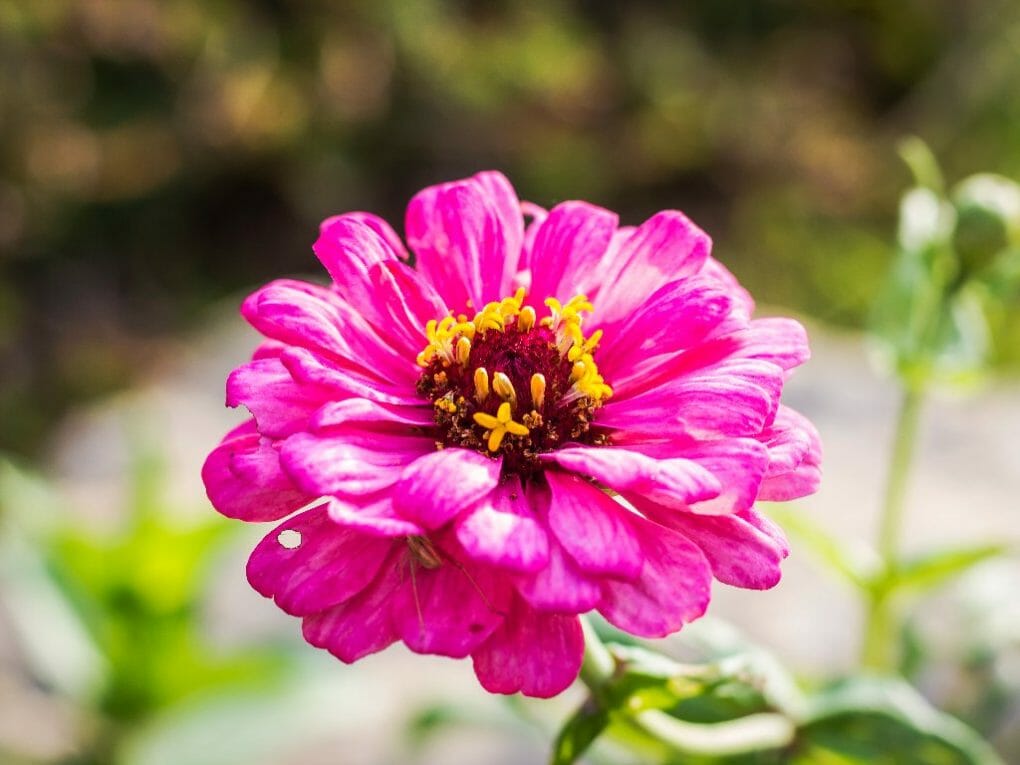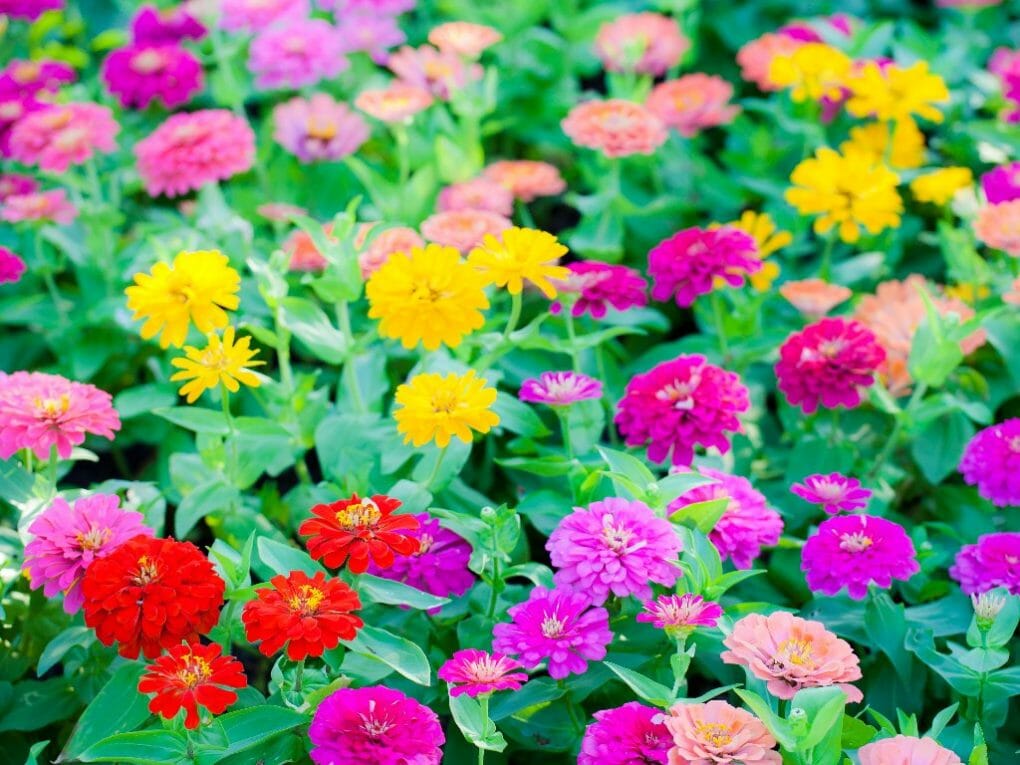Applying Fertilizer on Zinnias| 10 Types of Zinnia Fertilizers That You Should Try

Zinnia fertilizer can help your plants to thrive in any weather condition. Providing the right nutrients and soil conditioners can help your plants grow tall and strong. This easy-to-use fertilizer is also great for both indoor and outdoor use, so you can use it no matter where you are in the world.
Table of Contents
How Often Do You Need to Fertilize Zinnias?
Zinnias are heavy feeders. Therefore, fertilizing plants frequently will promote lush, brilliant blooms. Utilize a balanced 10-10-10 or 6-6-6 fertilizer and apply approximately one pound per 100 square feet for the initial spring planting treatment. You can fertilize zinnias again in the middle or late summer, as they will continue to bloom far into the fall.
Regularly apply a balanced, water-soluble plant fertilizer to your zinnias. In your apartment garden, your zinnia plants will bloom and look their best if you fertilize them once per month or in smaller quantities every two weeks.
When planting, the soil should be mixed with a fertilizer with equal amounts of nitrogen, phosphorous, and potassium. After being planted, zinnias should be fertilized once a month with a fertilizer with more phosphorous than nitrogen. This will help the flowers grow and bloom again.
Before planting, incorporate a small amount of well-balanced organic fertilizer into the soil and mix it in. The best time to encourage vigorous reblooming is midsummer when a drenching with a liquid fertilizer high in nitrogen can do the trick.
You can sprinkle in some composted food scraps or a handful of vermicompost. Additionally, apply a fertilizer made from banana or onion peels once every 30 days.
When fertilizing your potted plant, give it a good soaking with water.
Add half a teaspoon of Epsom salt and potash if you want to use inorganic fertilizers. Additionally, every 30 days, sprinkle 4–6 granules of DAP on your plants. Don’t go crazy with the fertilizers, though. This plant may be damaged by using too much fertilizer.
To put it another way, zinnias bloom yearly and are regarded as heavy feeders. Through the growing season, feed your plants a 10-10-10 is a good all-purpose garden fertilizer. The manufacturer’s instructions should use the fertilizer. Fertilizing may need to be done more often for plants in containers. Consider using water-soluble plant food on your zinnias, but remember never to do so on dry soil.
Before planting zinnias, amend the soil with compost. Side-dressing with a natural 5-5-5 fertilizer when flowers first appear will encourage their growth and produce larger blooms.
Zinnias require fertilization to maintain a steady production of new flowers throughout the growing season. When the seedlings are about 10 centimeters (about 4 inches) tall, use a water-soluble formula with the nutrient ratio 5-10-5 to give them their first feeding. Follow the fertilizer’s label directions and dilute it to only a quarter of its original strength. Midway through the summer, give the plants some additional fertilizer to continue to thrive and produce blooms.
10 Types of Zinnia Fertilizers

1. Bayer Advanced Rose & Flower Care
It is a three-in-one substance that functions as fertilizer and a disease preventative. Aphids, Japanese Beetles, Lacebugs, Mealybugs, Whiteflies, and Thrips are a few of the pests it manages. Additionally, it manages rust, black spot, powdery mildew, and blight. Additionally, it can cure up to 32 roses and lasts up to 6 weeks.
2. JR Peters Jack’s Classic Blossom Booster
Another excellent alternative for fertilizing your zinnia is the JR Peters Jack’s Classic Blossom Booster. It nourishes the leaves and roots of your zinnia. This is fantastic for avoiding burns. It is made using an appropriate nutrition micronutrient bundle. This makes it ideal for having robust roots and lush foliage.
3. Miracle-Gro Plant Food
This water-soluble miracle-gro solution is the only fertilizer recommended for use at any farm or farmer’s market. This fertilizer stands out from rivals since it provides immediate results for annual and perennial flowers. Not only that, but you can use it every week without harming your zinnia. It’s reasonably priced and can cover a huge area.
4. Down to Earth Organic Rose & Flower Fertilizer
The ideal ratio of nitrogen for rapid development, extra phosphorus for stunning flowers, and potassium for robust plant stock make up Down to Earth Organic Rose & Flower Fertilizer. Fishbone meal, langbeinite, blood meal, alfalfa meal, and kelp meal are the main ingredients in this fertilizer. The best part is that it may be used for roses, edible bulbs, annuals, and perennials.
5. Dr. Earth Total Advantage Rose & Flower Fertilizer
The non-GMO fertilizer Dr. Earth Total Advantage Rose & Flower is produced in the USA. Both people and pets can use this fertilizer. Ingredients fit for human and animal consumption, including multi-minerals, proteins, and carbs, are used to make it.
6. Miracle-Gro Shake N Feed Rose & Bloom
This fertilizer is ideal for novice gardeners and fertilizers. This product stands out since it is pre-measured, eliminating any feeding uncertainty.
7. Jobe’s Organics Rose & Flower Fertilizer
An organic and quick-acting fertilizer is Jobe’s Organics Rose & Flower Fertilizer. Pets and children can use this fertilizer. It contains exclusive biozone bacteria, which enhance soil quality and nutrient absorption, which is the best part.
8. Espoma Rose Plant Food
Espoma Rose Plant Food contains thousands of microorganisms and is natural and organic. This American-made fertilizer is secure for use by both people and the environment. The fact that this product has all 15 of the necessary nutrients for zinnias to develop and blossom greater than ever is what you’ll appreciate most about it.
9. Osmocote Smart-Release Flower Food
When it comes to zinnia fertilizers, Osmocote is one of the most well-known and regarded fertilizer products, and you can’t go wrong with this plant food. You’ll adore this product because it is simple for zinnia growers just starting. It just needs to be applied once every six months.
10. EZ-Gro Flower Food
This product stands out from rivals because it feeds your zinnias immediately, increases zinnia buds, and has more micronutrients than any other fertilizer. This fertilizer is adaptable and may be used with zinnia plants grown indoors and any zinnia planted outside in your garden or yard.
